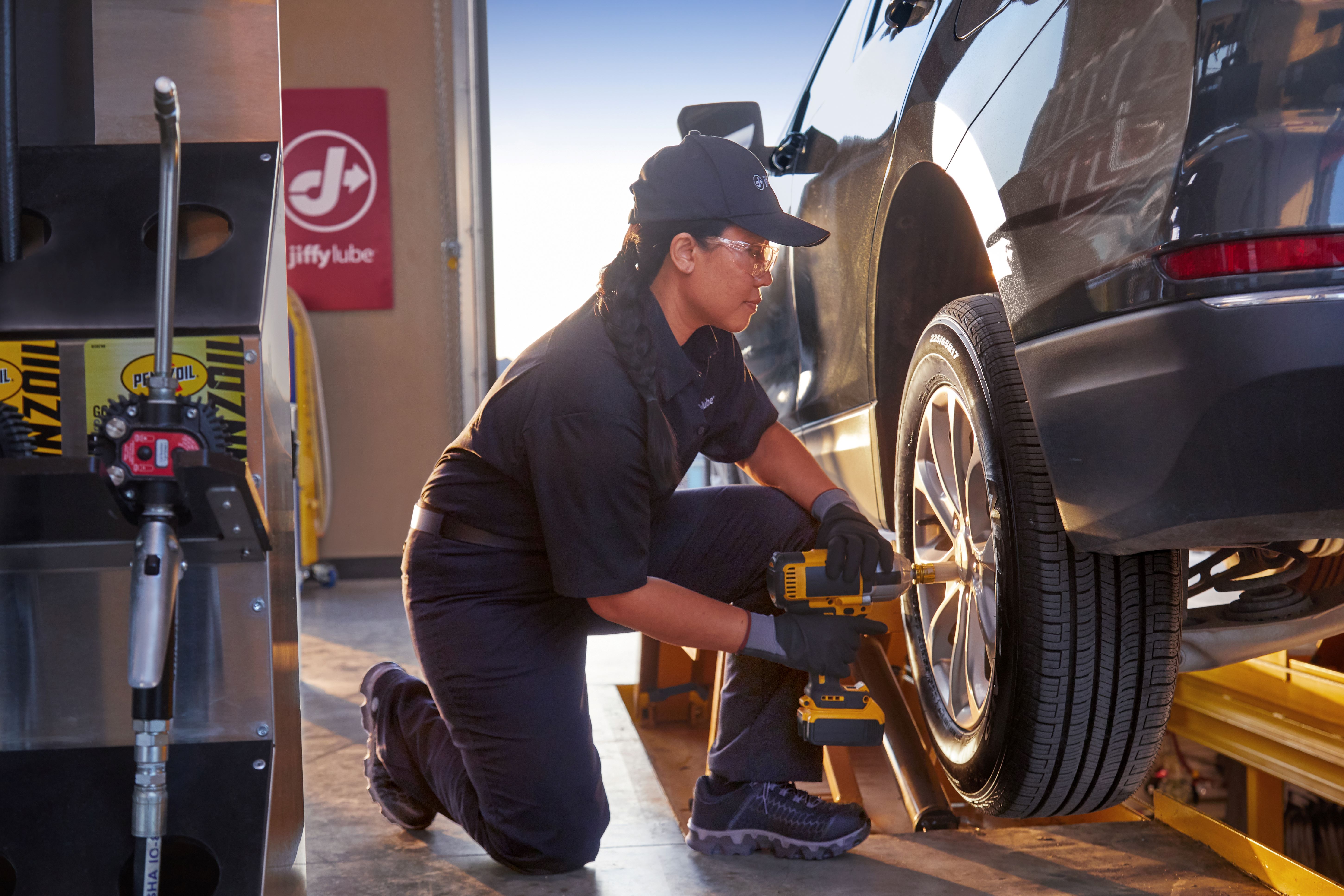Explore Exclusive Mopar Tire Service Specials in Morris Today
Explore Exclusive Mopar Tire Service Specials in Morris Today
Blog Article
Tire Service: Understanding Tire Stress Tracking Equipments
Recognizing Tire Pressure Surveillance Systems (TPMS) is a crucial facet of keeping optimum car performance and safety on the roadway. With improvements in automobile modern technology, TPMS has come to be a typical feature in modern-day automobiles, supplying real-time information on tire stress levels.

Significance of TPMS
The value of Tire Stress Surveillance Systems (TPMS) depends on their capacity to improve automobile security and performance through real-time tracking of tire pressure degrees. Preserving the correct tire stress is crucial for making sure optimal handling, stopping, and total security of a vehicle. TPMS gives chauffeurs with prompt responses on any type of overinflated or underinflated tires, permitting timely adjustments to be made.
Parts of TPMS
Sensors are commonly situated in the tire valve stem or affixed to the wheel assembly, where they measure tire stress and send information to the control module. Some advanced TPMS models likewise show the actual tire stress analyses for each tire, offering drivers with real-time details to make sure optimal tire performance and security. By monitoring tire pressure continually, TPMS helps stop crashes, reduces tire wear, and boosts fuel efficiency, making it a vital part for vehicle safety and efficiency. tires morris il.
Kinds Of TPMS

On the other hand, indirect TPMS relies on the vehicle's wheel speed sensing units to keep track of tire stress. This system spots underinflation by contrasting the rotational rates of the wheels. Indirect TPMS is much less expensive than straight TPMS, as it utilizes existing sensing units within the vehicle.
While straight TPMS uses much more exact analyses, indirect TPMS is simpler in design and generally needs much less maintenance. Both systems have their advantages and constraints, and the option in between them frequently depends upon factors such as cost, car make, and individual preference. Recognizing the distinctions in between these two sorts of TPMS can help lorry owners make educated choices pertaining to tire maintenance and safety and security.
TPMS Maintenance Tips
Effective maintenance of TPMS is crucial for making sure ideal efficiency and safety of your vehicle. Consistently checking the TPMS sensing units for any damage or deterioration is critical. Make sure that the sensors are tidy and totally free from debris that could hinder their functioning. In addition, it is suggested to inspect the sensor batteries occasionally and replace them as required to guarantee accurate analyses. Conduct regular examine the tire stress levels and compare them This Site with the Click Here TPMS analyses to ensure they are regular. Rectify the system adhering to the maker's guidelines if there are any kind of inconsistencies. Throughout tire rotation or substitute, make sure that the TPMS components are dealt with very carefully to prevent any type of prospective damages. If the TPMS alerting light illuminates on the control panel, attend to the issue without delay by checking the tire stress and the total system for any type of faults. By sticking to these maintenance ideas, you can extend the lifespan of your TPMS and improve the safety of your driving experience.
Advantages of Appropriate Tire Pressure
Maintaining appropriate tire stress, as emphasized in TPMS Upkeep Tips, is essential for gaining the numerous benefits linked with optimal tire stress levels. Furthermore, correct tire pressure guarantees even tire wear, expanding the lifespan of the tires and promoting more secure driving problems. In conclusion, the benefits of proper tire stress go past simply tire longevity; they include boosted gas efficiency, enhanced security, much better lorry efficiency, and overall driving comfort.
Final Thought
To conclude, understanding tire pressure tracking systems (TPMS) is critical for maintaining optimal tire pressure and guaranteeing lorry safety and security. By recognizing the significance of TPMS, more tips here recognizing with its parts, knowing the various kinds readily available, sticking to proper maintenance suggestions, and recognizing the benefits of maintaining appropriate tire pressure, chauffeurs can enhance their driving experience and prolong the lifespan of their tires. Proper tire stress is vital to secure and reliable automobile procedure.

Report this page